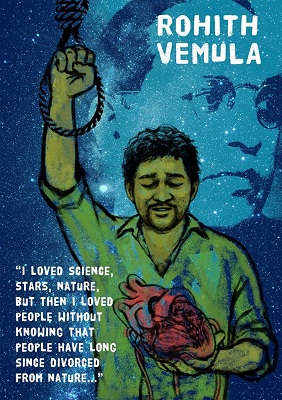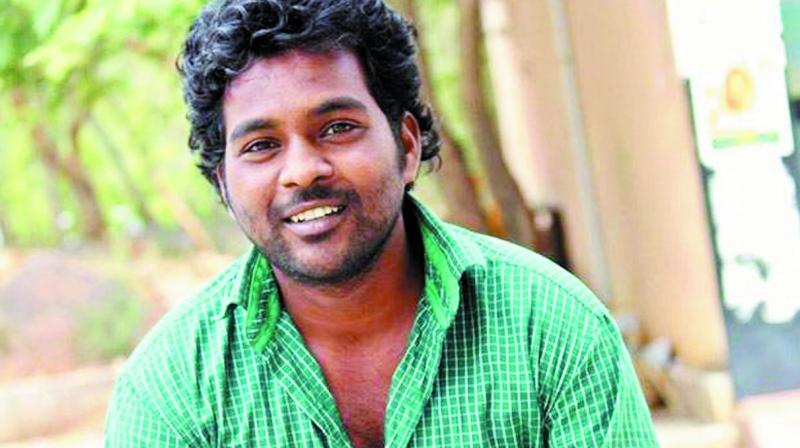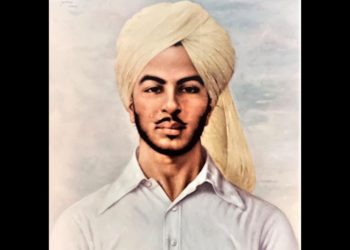On 17 January 2016, University of Hyderabad mourned over the death of their young research scholar Rohith Vemula. The 27 year old ended his life after facing continuous harassment from the university’s administration. Rohith’s institutional murder reignited a debate in the country that has long lain dormant: Was Rohith targeted because of his caste? Can caste become the basis of discrimination even in educational institutions?
Spontaneous protests were held across the country, seeking justice for Rohith. Radhika Vemula, his mother, along with other students who joined her in protest, were dragged and beaten up in the streets of Delhi by the police. A fresh probe was set up by the Guntur police, ostensibly with the purpose to “determine” Rohith’s caste. Both the Central government and university administration were unwilling to admit that Rohith was a Dalit. After the police report confirmed it, the HRD Minister Ms. Smriti Irani ordered a new probe to “confirm” Rohith’s caste. A judicial commission was set up by the Human Resources Development Ministry, consisting of one man, the former Allahabad High Court judge, Justice A K Roopanwal. Ultimately, the new investigation concluded that Rohith wasn’t a dalit. The report stated
“Mrs. V. Radhika, mother of Mr. Rohith Vemula, is a Scheduled Caste lady and married to Vemula Mani Kumar who belongs to a backward community. She was divorced in 2006. …Henceforth, Rohith is not a Dalit” (Roopanwala Report).
Read the full report here.
In this game of determining and confirming his caste identity, the very real issue of caste discrimination that plagues even India’s highest educational institutions was lost.

They Chose Death Over Humilation
In the letter left behind by Vemula, he wrote, “The value of a man was reduced to his immediate identity and nearest possibility. To vote. To a number. To a thing.”
Rohith’s is not a lone case. Over the years, many students have committed suicide after facing caste based discrimination. In Rohith’s immortal words, their caste became a “fatal accident.” Yesterday marked two years of his death. Since then, there have been no steps taken to address the issue. The number of deaths that happened across the country in the name of caste discrimation has doubled. While many chose to fight against this humilation, many chose death over humlation. We revisit Vidhya and Tilak’s article remembering some of those who chose death over humiliation.
Read the full article here.
“When Equality is Denied Everything is Denied”: Rajani Krish
Muthukrishna aka Rajani Krish, research scholar at Jawaharlal Nehru University hung himself in his friend’s room in Munirka last year. The young Dalit scholar was could not follow his dream to do his research because of his poor language proficiency in various universities across the country. Later, when he joined Jawaharlal Nehru University on July 2016, as an M.Phil student in the Centre for Historical Studies, he found himself alienated by his peers because of his lack of fluency in both English and Hindi. The last post the native Tamil speaker on his facebook page before his death was:
“When equality is denied everything is denied. There is no Equality in M.Phil/Phd Admission, there is no equality in viva – voce, there is only denial of equality, denying Prof. Sukhadeo Thorat recommendation, denying Students protest places in Ad – block, denying the education of the Marginalised“.
His death has raised many questions. Was he discriminated against because of the his caste? Is Muthu’s death also an instititional murder? Has he too become another Rohith?
Read more here.





